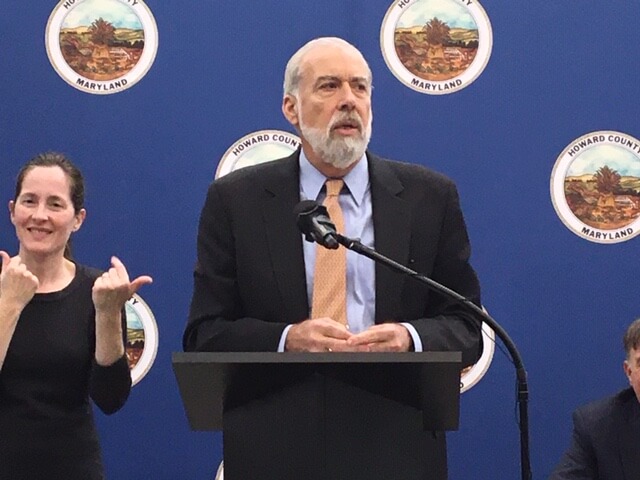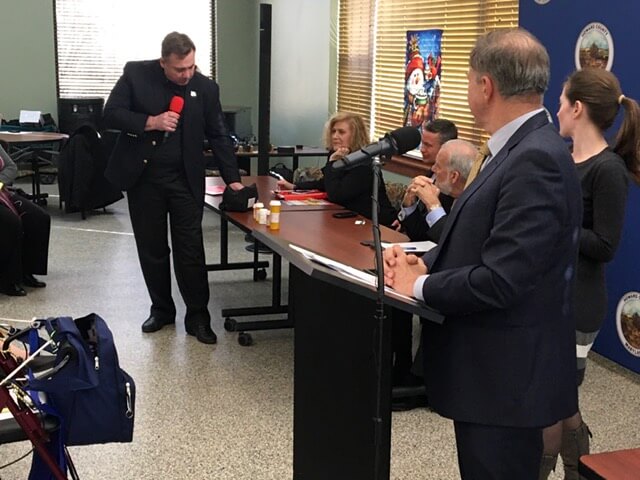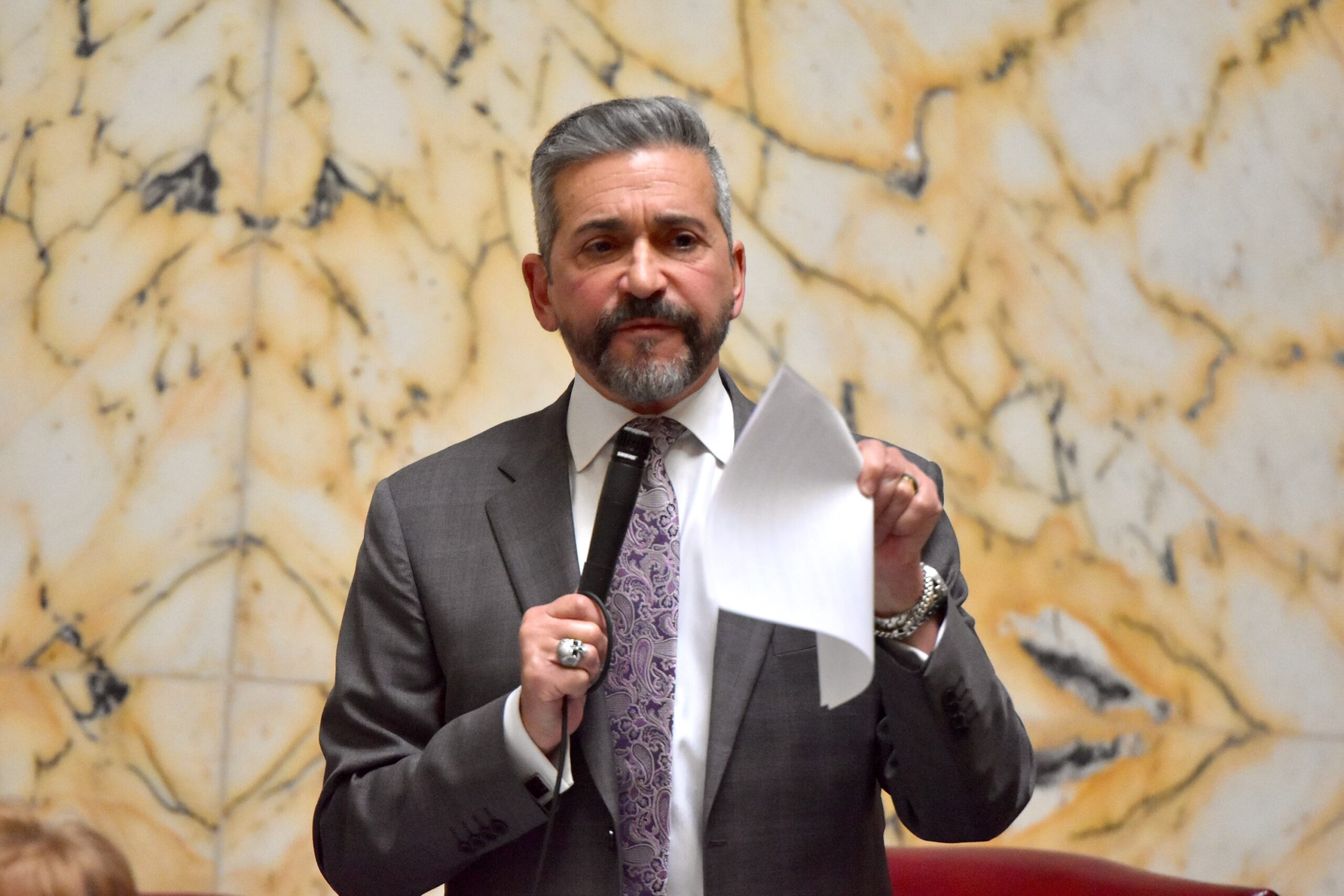Leader of New Prescription Drug Board Says Relief Is on the Way

The leader of Maryland’s effort to force reductions in the cost of prescription drugs expressed cautious optimism on Monday that a new state panel will be able to deliver relief to consumers — but he cautioned that results are not foreordained.
Van T. Mitchell, the chairman of the Maryland Prescription Drug Affordability Board, said it will take a coordinated effort from manufacturers, insurers and others.
Mitchell spoke at a forum held at a senior center in Ellicott City just a week before the panel he leads meets for the first time.
A former state Health secretary and ex-state delegate, Mitchell was candid about the challenges he faces launching the first drug panel of its kind in the nation.
“When I got appointed to the state Health Department, they gave me a $12.5 billion budget and 9,000 employees,” he said. In his new post, “we got no money and no employees.”
The five-member panel was created by the General Assembly last year in response to eye-popping increases in the cost of prescription medication.
To fund operations for the first year, they borrowed $750,000 from the Maryland Health Care Commission. After the panel meets, its first order of business will be hiring an executive director and general counsel — and figuring out how to repay the borrowed funds.
Board members will not have the power to cap prescription prices, but they can recommend “upper payment limits” on what county and state government drug plans will be willing to reimburse. A panel of legislative leaders would then have to vote to approve any recommendations the panel makes.
Maryland’s Prescription Drug Affordability Board is believed to be the first of its kind in the nation. Vincent DeMarco, the head of the Maryland Citizens Health Initiative, said a dozen others states have expressed an interest in following Maryland’s lead.
The pharmaceutical industry is watching the state’s efforts closely, and DeMarco seemed to acknowledge that legal challenges are possible.
“Our belief is that a state can do that — that a state can say you can charge whatever you want, but we’re going to only pay what’s affordable,” he told the crowd.
Mitchell and others attending the forum heard from consumers — many of them retirees — who struggle with co-pays.
Larry Zarzecki, a retired police officer who suffers from Parkinson’s disease, laid out a small row of medications that cost him $3,000 per month — after insurance. The price of one drug increased 648 percent just last year, he said.

Retiree Larry Zarzecki shows his Parkinson’s medication at a forum on prescription drugs in Ellicott City Monday. Photo by Bruce DePuyt
Harford County Executive Barry Glassman (R), until recently the head of the Maryland Association of Counties, said local government budgets are straining under the weight of prescription medications.
He said a relatively small number of drugs is driving big increases in spending.
“Over the last five years, pharmacy prescription costs are one of the largest drivers in local government costs,” he said. “There may be 10 specialty drugs that cost — and many of you know what they are — and they can run into the thousands per month.”
The prescription drug panel meets for the first time on Monday.
Mitchell said past successes — such as expanding health coverage to children in low-income families and closing the “donut hole” in the federal government’s prescription drug benefit — make him optimistic the state will succeed in forcing reductions in the price of medications.
“If we keep everybody at the table and we don’t try to get in-fighting with one versus the other, but really try to look at this systematically, like we have on the CHIP program and the donut hole with the seniors years ago … then I think we can make a difference.”
DeMarco said health care advocates hope to expand the concept in 2023, to provide protection to all consumers, not just government workers and retirees.




 Creative Commons Attribution
Creative Commons Attribution